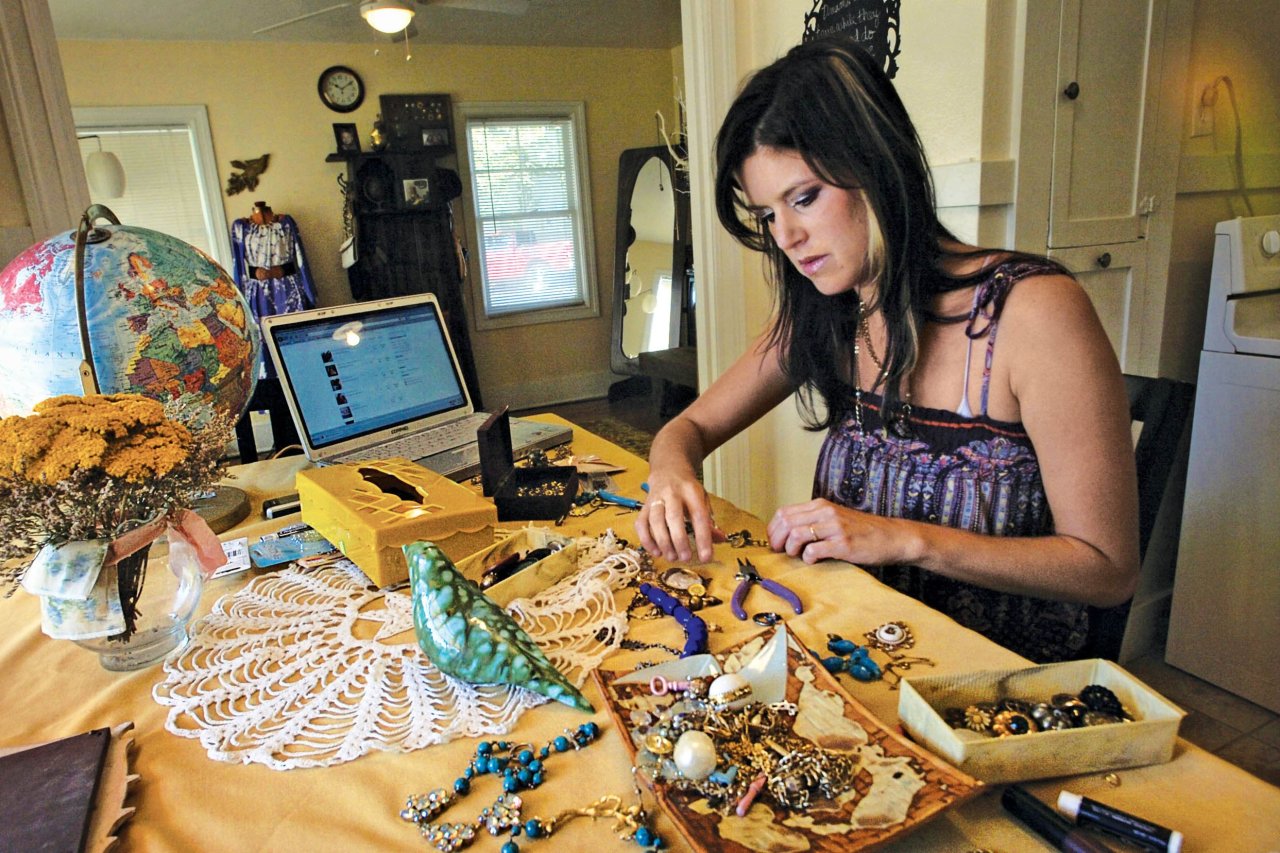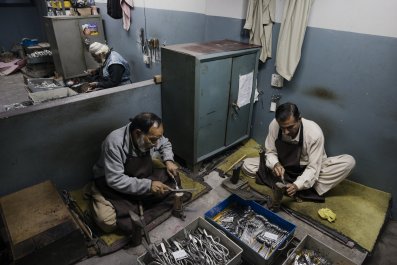Doing one job at a time is about to become as quaint as having one phone in the house. In your new career, you'll get to have many different jobs every day.
We're seeing the dawn of the era of horizontal work, an amalgam of jobs that cut across our lives. Other terms being thrown around are "invisible work" and "micro-entrepreneurship." However you label it, technology is allowing people to earn money from all their different assets and skills at the same time.
Millennials seem drawn to such a lifestyle. It can lead to a blending of work and other facets of life that one organization, Live in the Grey, promotes as giving us "more purpose, more meaning, more fun."
Either that or it will grind us into dust, because we can't find a relaxing few minutes to just sit on the couch drinking beer and repeatedly watching Lauren Graham's scenes in Bad Santa. Not that I know anyone who does that.
A startup called Recruitifi helps illustrate how technology is facilitating horizontal professionals. The core purpose of Recruitifi is to create an Uber-ish platform for the recruiting universe. Today, when a big company wants to hire an executive, it will usually turn to a headhunting firm, which in turn draws from the candidates it knows. Recruitifi's technology pools all kinds of headhunters on one side, and all kinds of corporate clients on the other, much the way Uber pools drivers on one side and riders on the other, with a clever app in between. In theory, Recruitifi should let headhunters get to see vastly more job openings than they can try to fill, and companies see candidates from a vastly larger pool of recruiters.
But there is an intriguing by-product to Recruitifi: Anyone can become a recruiter, much as Uber lets anyone become a taxi driver or Airbnb lets anyone become a hotelier. "There is really no barrier to entry," CEO Brin McCagg says. So let's say you're a successful and well-connected breakfast cereal marketing manager. You probably know a whole lot of good breakfast cereal marketing managers. You could set up an account on Recruitifi, keep an eye on the demand for breakfast cereal marketers and propose candidates for openings. If your candidate gets hired, you get paid like a real recruiter. Now you have a new line of work that's really just monetizing an asset—your network—that had been sitting idle.
To some extent, eBay started this in the late 1990s when it created a platform that let people sell another kind of idle asset: the crap lying around in their houses. Etsy developed a way to let you sell a skill you may not get to use in your 9 to 5 job, like your ability to make a smokin' rubber catsuit. Airbnb is a way to monetize the extra room in your house. Airbnb says that in New York alone it supports 4,580 "jobs," most of them very part time. Those hosts make an average $7,530 a year renting out space.
The new wave of Recruitifi-ish services takes all that to a more professional level. DigitalOcean, for instance, is making it easy and cheap for an individual to build a smartphone app and set it up as a stand-alone business. It's so easy you could do it as a hobby, instead of painting toy soldiers. Quirky, backed in part by General Electric, lets anyone submit an idea for an invention. If the idea gets chosen by Quirky's community, Quirky manufactures and sells the product and pays a percentage to the inventor. One artist has been paid more than $400,000 for coming up with a new, cool type of extension cord.
Big companies will increasingly crowdsource the kinds of work they never used to let anyone outside their walls touch. Last year, GE opened up a public contest it called the Bracket Challenge. The jet engine division needed a new lightweight design for brackets that would help hold an engine on an airplane. (So it's kind of an important part.) About 700 people from all over the world submitted designs. GE chose a design by M Arie Kurniawan, who works at a two-person engineering shop in Indonesia. Kurniawan won $7,000, and GE got a part that's 84 percent lighter than its predecessor.
As more technologies help more people do this kind of work, you can see where it will lead: If you have a full-time job, you might spin off your professional assets by recruiting a bit, inventing some stuff, building an app and doing work posted by corporations, all while selling personal assets like rides in your car or a bed in your house. Live in the Grey asks why anyone would want a single job that eats up 40 hours a week. Better to piece together work and passions in a way that makes you enough money and offers a more balanced life.
On the other hand, this is not how Western society has operated for the past 100 years. The U.S. Bureau of Labor Statistics misses this kind of work when it measures employment and wages, so the government understands the micro-labor market as well as JWoww grasps the physics in Interstellar. Inbred patterns like the morning commute and standard school day clash with horizontal work schedules. This could be an adjustment as jarring as last century's shift from agricultural work to office work.
Studies by author Erik Brynjolfsson and others predict that technology such as artificial intelligence will destroy many of today's professional, knowledge-worker jobs. But these other technology platforms—Recruitifi, Etsy, crowdsourced invention contests—will create vast numbers of micro-jobs. The idea of a job is changing into something more like a market for whatever you can do.
Double bonus if you can find me a way to cash in on extraordinarily detailed knowledge of Bad Santa.



















